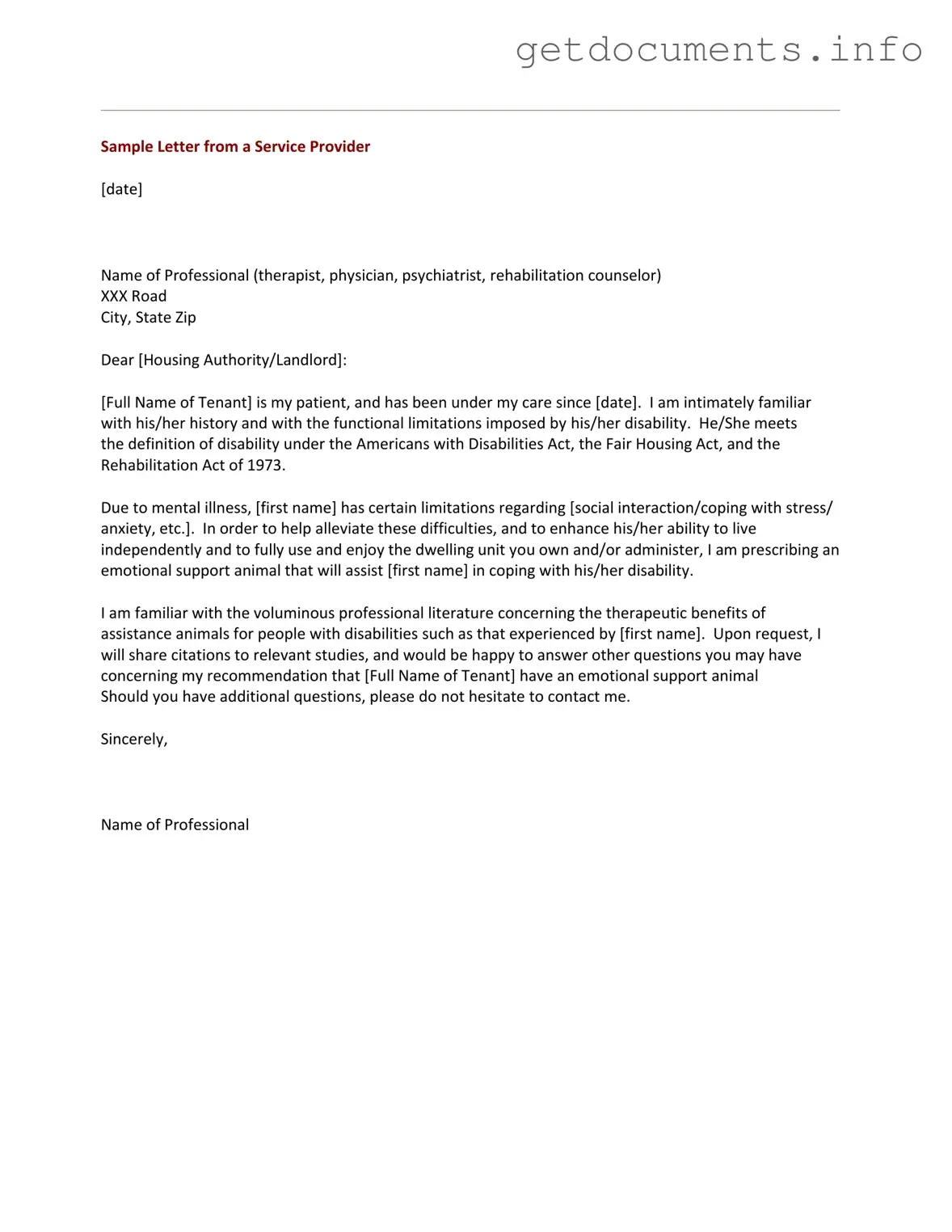Official Emotional Support Animal Letter Form
The Emotional Support Animal Letter is a document that certifies an individual's need for an emotional support animal to alleviate symptoms of mental health conditions. This letter serves as a vital tool for those seeking the companionship and therapeutic benefits of an animal, particularly in housing and travel situations. If you believe you could benefit from this support, consider filling out the form by clicking the button below.
Access Emotional Support Animal Letter Editor
